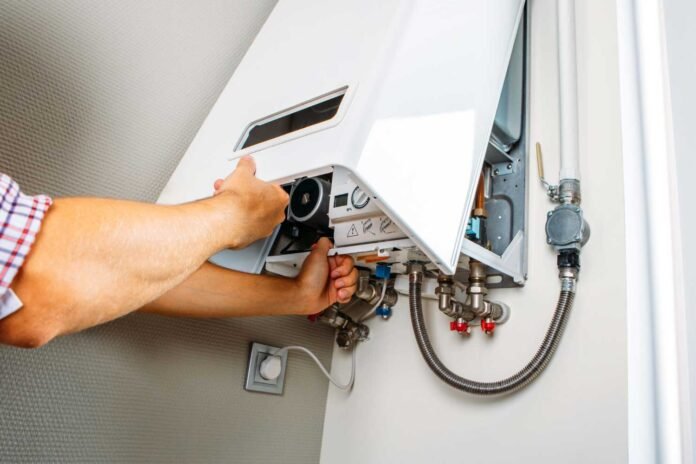Boiler installation is a crucial aspect of maintaining a comfortable and efficient home. Whether you’re replacing an old boiler or installing a new one, understanding the process and making informed decisions can save you both time and money. A new boiler not only improves energy efficiency but also enhances safety and reduces your carbon footprint. In this guide, we’ll walk you through everything you need to know about boiler installation, from selecting the right system to understanding the installation process and ensuring long-term maintenance.
Choosing the Right Boiler for Your Home
When it comes to boiler installation, choosing the right system for your home is paramount. The type of boiler you select will depend on several factors, including the size of your home, the number of bathrooms, and your heating needs. There are three main types of boilers: combi, system, and regular.
- Combi Boilers: These are ideal for smaller homes or apartments as they provide both heating and hot water from a single unit. They’re compact, energy-efficient, and don’t require a separate hot water tank.
- System Boilers: Best suited for homes with higher heating demands, system boilers work with a separate hot water cylinder to store hot water, ensuring you have a constant supply.
- Regular Boilers: Also known as conventional or traditional boilers, these are suitable for larger homes with multiple bathrooms and heating zones. They require a hot water tank and a separate cold water storage tank.
The Boiler Installation Process
Once you’ve selected the right boiler, the installation process begins. This typically involves several key steps:
- Site Survey: A professional installer will visit your home to assess the best location for your new boiler. This involves checking the space available, ensuring proper ventilation, and verifying that the existing pipework and system are compatible.
- Removing the Old Boiler: If you’re replacing an old boiler, the installer will safely remove and dispose of the old unit. This step is crucial to ensure that your new installation is clean and free of potential issues.
- Fitting the New Boiler: The new boiler will be installed according to the manufacturer’s guidelines and local building regulations. This includes connecting the unit to the existing pipework, installing any necessary components, and ensuring proper ventilation.
- System Testing: After installation, the system will be thoroughly tested to ensure it operates correctly. This includes checking for leaks, verifying pressure levels, and making sure the heating and hot water systems are functioning as expected.
- Final Checks and Handover: The installer will provide you with a demonstration of how to use the new boiler and offer any necessary maintenance advice. They will also ensure that all paperwork, including warranties and certificates, is completed and handed over to you.
Understanding the Costs of Boiler Installation
The cost of boiler installation can vary depending on several factors, including the type of boiler, the complexity of the installation, and your location. On average, you can expect to pay between £1,500 and £3,000 for a new boiler and installation. It’s essential to get multiple quotes from different installers to ensure you’re getting the best value for your money.
In addition to the initial installation cost, consider the long-term savings that a new, energy-efficient boiler can offer. Modern boilers are designed to be more efficient, reducing your energy bills and lowering your carbon footprint.
Maintenance and Upkeep
To ensure your boiler operates efficiently and lasts for many years, regular maintenance is essential. Schedule an annual service with a qualified heating engineer to check for potential issues, clean the system, and make necessary adjustments. Regular maintenance helps prevent unexpected breakdowns and keeps your system running smoothly.
Signs You Need a New Boiler
Knowing when to replace your boiler is vital for maintaining home comfort and efficiency. Some signs that it might be time for a new boiler include:
- Frequent breakdowns or repairs
- Increased energy bills despite regular maintenance
- Inconsistent heating or hot water supply
- Visible leaks or unusual noises from the boiler
If you notice any of these issues, consult a professional to assess whether a new boiler is the best solution.
Choosing a Qualified Installer
Selecting a qualified and reputable installer is crucial for a successful boiler installation. Look for installers with industry certifications, such as Gas Safe registration, and check customer reviews to ensure they have a track record of high-quality work. A professional installer will not only provide a seamless installation but also offer valuable advice on maintaining your system.
Final Thoughts
Boiler installation is a significant investment in your home’s comfort and efficiency. By understanding the different types of boilers, the installation process, and the importance of regular maintenance, you can make informed decisions that benefit your home for years to come. Whether you’re upgrading an old system or installing a new one, taking the time to research and choose the right solution will ensure you enjoy a warm, efficient, and reliable heating system.
